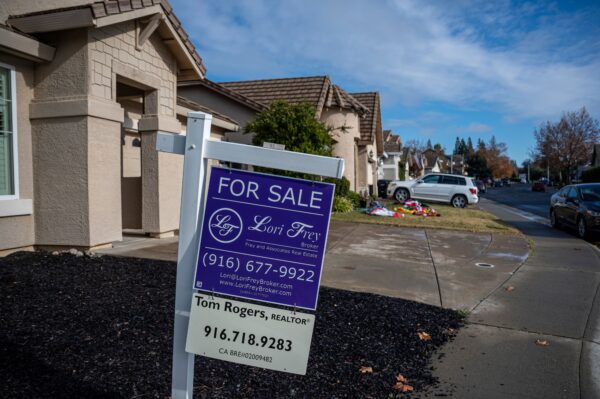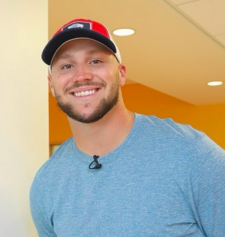By Ella Ceron
While 95% of millennials who rent want to own a home, they’re doubtful they’ll be able to pull it off any time soon.
First there was the pandemic housing frenzy, with bidding wars and cash offers dominating an under-supplied market that was too hot for many first-time buyers to crack, even with historically low mortgage rates. Then came interest rate hikes, which have driven up borrowing costs. And while the Fed has managed to cool housing demand, the supply of available properties is still low and monthly mortgage payments have spiked out of reach for many potential buyers.

To make matters worse, inflation has driven up the cost of everything from groceries and utilities to rent and food, making it even harder to save for a home.
“It’s not just one factor that’s holding back first-time home buyers — it’s a number of factors,” said Jessica Lautz, the deputy chief economist and vice president of research at the National Association of Realtors. “All of them can compound on each other.”Here’s a look at some of the issues that kept potential first-time buyers, many of whom are millennials, on the sidelines this year.
Mortgage Rates
Higher borrowing costs have cooled the housing market, but in many areas prices haven’t dropped enough to make properties affordable for first-time buyers.
Kerry Tuttle, a public relations manager in Chicago, had to push back her timeline for purchasing a property. She and her partner planned to buy a two-bedroom apartment at the end of their last lease and saved $35,000 for a down payment. But the properties in her price range were worse quality than she expected.
“It was clear I was going to get less for my money if I bought in this market,” she said.
Additional costs like homeowners association dues and taxes, meant apartments that cost less than $350,000 were out of her budget. Instead, the couple rented a larger apartment, and are weighing whether to prioritize getting married.
The median sale price for a home in the Chicago area in November was $310,000, down from a high of $372,750 in April but still nearly 20% higher than five years ago, according to Redfin. The online brokerage recently predicted that Chicago’s housing market would remain largely steady in 2023.
Bills, Bills, Bills
The idea of saving for a home is daunting at a time when everything from rent to groceries is increasingly expensive and wage gains aren’t keeping up with inflation.
“The focus right now is to stay afloat without having to dip into my savings before my next paycheck, which I can rarely manage to do,” said Amelia Garrison, a senior recruitment manager for a non-profit in Columbus, Ohio.
Another blow? President Joe Biden’s student debt forgiveness plan, which some millennials saw as an opportunity to reduce their debt load and accelerate savings for a home, is stalled by legal challenges.
Stephanie Valentini, a 32-year-old graduate student and behavioral analyst in Kansas, said she and her partner will have pay at least $1,000 per month when student loan payments resume. As it is, rent, medical bills and other costs have forced them delay life milestones.
“It’s unlikely we’ll be able to afford a house and children — even as two well-educated and privileged women,” she said.
Racial Disparity
Buying a home has long been a key way to build wealth. And the struggles for first-time buyers have landed especially hard on people of color, who historically have been subjected to redlining and wage gaps. The millennial generation in the US is more diverse than their predecessors — and the Gen Z is outpacing them as well.
Across age demographics, 88% percent of people who bought a primary residence between July 2021 and June 2022 were White, according to the National Association of Realtors. Among first-time buyers during that period, 82% were White, the highest share in at least 20 years.
Being Single
It’s even tougher to buy a home for single people, and millennials are increasingly in that cohort. They’re getting married later in life than previous generations, and more than half of the age group are unmarried.
“It really feels like I’ll never be able to buy unless I’m applying for a mortgage with a significant other,” said Caitlyn Coyle, a 33-year-old store manager in New Jersey. “I make decent money and I’m not struggling, but I’m also able to save very little from my paycheck to put towards a down payment.”
Catherine Young, a 32-year-old producer in Los Angeles, is still hopeful she can buy a house — but she isn’t banking on a dual income to achieve it.
“I can’t guarantee I’ll find someone I want to be with long-term before I’m ready to buy a home,” she said. “And I want the home more.”
More stories like this are available on bloomberg.com




